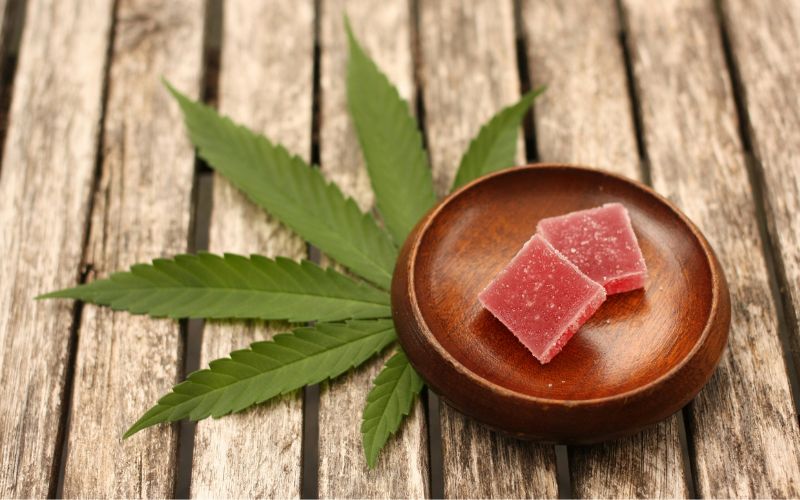
Just about everyone pursues their peak performance in today’s hectic world. People are constantly looking for ways to challenge themselves, sharpen their minds, stay focused, ease pains, unleash their imagination, relax, and recharge to unlock their full potential, or just feel good.
Microdosing cannabis caught consumers’ attention for reportedly producing effects like those above. The practice also gained popularity because it doesn’t produce the psychoactive (“high”) effects associated with higher doses of THC. Instead, microdosing offers subtle yet significant benefits.
What was once an estimation, is now an exact science thanks to licensed producers and state-of-the-art technology.
A Microdose On Microdosing Cannabis
Microdosing is exactly what its name suggests. Consumers ingest cannabis in smaller doses between 1 to 5 mg that shouldn’t produce high effects.
While every consumer is different, people who microdose aren’t likely looking for euphoric highs, but rather want to use cannabinoids, such as THC and CBD, to regulate their body and improve their cognitive function.
Although research into the effects of microdosing cannabis is still in its early stages, some preliminary studies and significant anecdotal evidence suggest that it offers some potential benefits, such as:
- Enhanced focus: Some self-reports and select studies claim consuming cannabis in small doses helps them focus and improve performance, including at work.
- Boosted creativity: Microdosing is believed to spark the creative flame without any significant drawbacks.
- Anxiety reduction: Select studies and a wealth of anecdotal evidence suggests that microdosing CBD-rich strains may produce a calming effect, potentially helping users feel less anxious without experiencing psychoactive effects.
Microdosing cannabis isn’t without its difficulties. Regulation has made dosing less of a guessing game and deliver more consistent experiences. Still, microdosing can be difficult because products vary in dosage, meaning you need to be aware of what and how much you’re consuming. Additionally, cannabis products can affect people differently, even if the dosage is the same as other products.
It’s important to be careful and only use small amounts when microdosing or looking for your ideal dose. Low and slow is the name of the game.
Precise Measurement: The Heart of Microdosing Cannabis
Cannabis processors implement specialized techniques to make sure their microdosed products contain precise trace amounts of THC and no more. To streamline this process, ensure quality, and achieve the best possible results, producers use digital business solution tools like Cannabis Enterprise Resource Planning (ERP) systems, which help with production and all other aspects of production.
Maintaining precision and accuracy throughout the production process is vital for microdosing products. As a result, the following processes become the cornerstones for cannabis processors creating microdosing products:
- Recipe management: Processors and manufacturers must standardize and store recipes for microdosing products in an organized manner. Defining the right amount of THC isolate needed for each product ensures uniformity throughout batches.
- Inventory control: Cannabis processors need to accurately track THC stock to avoid inadvertently using higher potency substances that can disrupt microdosing computations. It’s important to give your team real-time insights into inventory levels as they’re completing tasks.
- Batch tracking: Monitor every phase of the manufacturing process and track each batch from seed to sale to detect aberrations, preventing them from spreading into the finished product.
Beyond Precision: Efficiency Gains with an ERP
Precision is crucial to manufacturing safe and appropriate microdosing products, but efficiency is equally important if you want to stay afloat in the highly competitive cannabis market.
Cannabis ERPs can also help businesses become more efficient by offering the following benefits:
- Specified dosing: By managing recipes (Bill of Materials/BOMs) on an ERP system, cannabis processors can standardize dosing across multiple product lines. This helps streamline processes and maintain precision.
- Compliance management: Manufacturers can configure ERPs to manage the complex regulatory environment surrounding cannabis production, helping them stay compliant with labeling and testing requirements. This is critical for microdosing products because they need accurate THC content.
- Data-driven decisions: Cannabis ERPs centralize production data in a single hub, making it more accessible to processors. Businesses can easily retrieve this information to make better decisions and optimize processes, analyze production bottlenecks, drive efficiency, or improve product quality.
The Future of Microdosing Products
While it’s too early to scientifically prove if microdosing cannabis can help people achieve their peak performance, the practice is popular, encouraging researchers to continue exploring its benefits and effects.
Meanwhile, cannabis processors must ensure that the products they’re manufacturing are safe and are dosed as specified on their packaging.
This is just one way ERPs can help cannabis businesses thrive. By using cannabis manufacturing software, processors can ensure precision, uniformity, and exact concentrations to offer a high-quality product to consumers, provide an exceptional microdosing experience, and succeed in the competitive market.
Photo by Plants for Persephone on Unsplash






